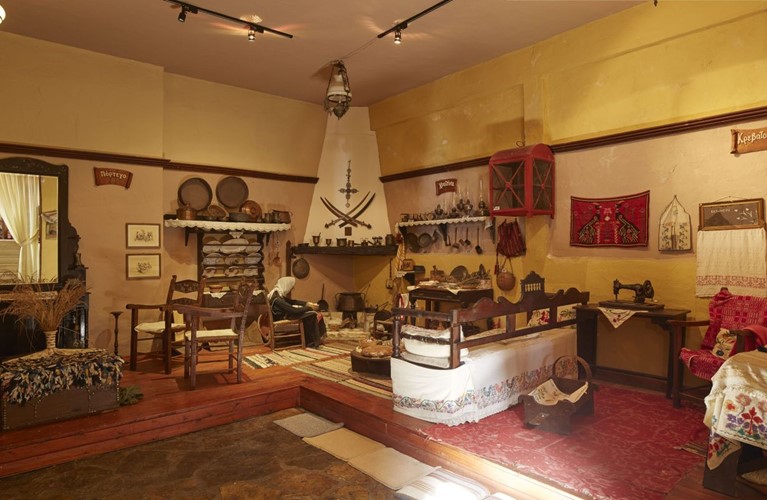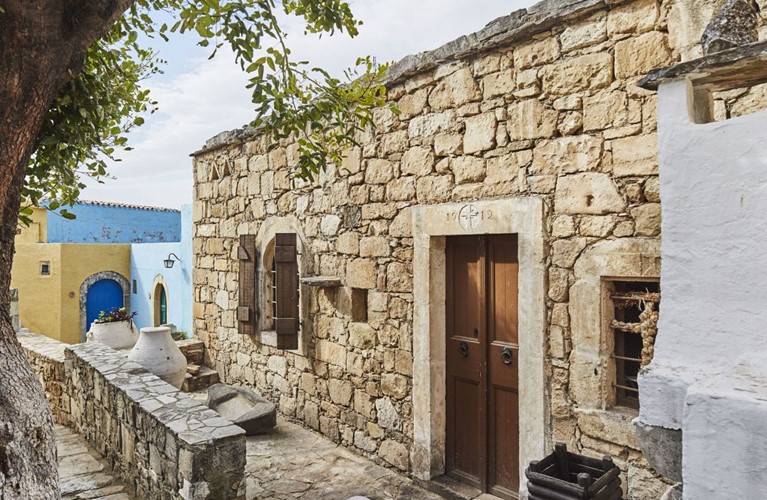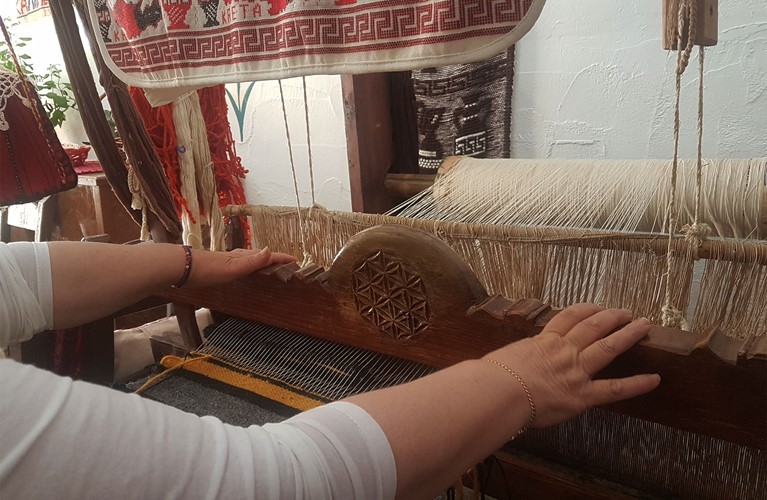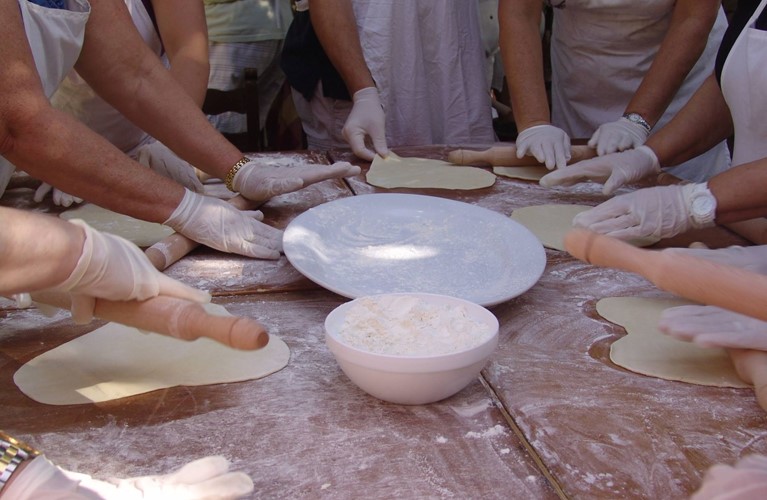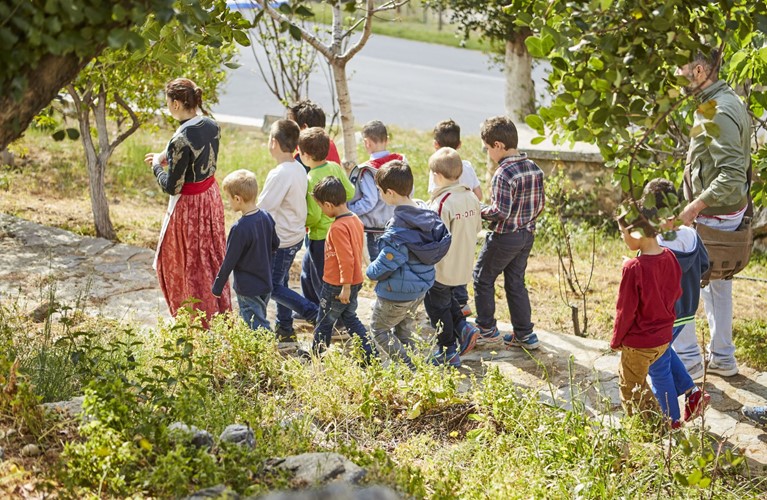ORTHODOX CULTURE
the Greek Orthodox Easter
The Greek Orthodox Easter is celebrated every year in ΑROLITHOS, always according to our age-long customs and traditions. Preparations and the celebration as a whole include typical activities from our local tradition. Christian celebrations take place in an ambience of piety and devoutness during church liturgies, according to the Greek orthodox rituals. It is early on Good Friday morning that the decoration of the Holy Rod and Sepulchre with flowers commences. Visitors and all people present in AROLITHOS work to that intent, if they wish to do so. After the decoration with flowers is complete, the priest commences the liturgy of Apokathilosis, which means the procedure of unpegging the Holy Body from the Cross and placing It in the Sepulchre, during an emotive ritual. Upon completion of the Mass, the Holy Sepulchre is carried along the narrow alleys of the village, in a procession followed by those who attend the Mass, as well as by anyone who wishes to follow. On Holy Saturday, there are fervent church preparations for Christians to receive the joyous news of the Resurrection.
When the night comes, everyone gets prepared for the Mass of the Resurrection. Christians carry candles with the Holy Flame and the News of the Resurrection is announced. Right afterwards, church bells chime cheerfully and another age-old tradition is practiced at the churchyard: people burn the effigy of Judas, since he betrayed Jesus and sent him to the Cross. “Judas” is nothing more than a big bundle of woods gathered on Good Friday and placed outside the church. Christians exchange blessings and they subsequently proceed to the restaurant. There, a sumptuous feast awaits all banqueters including a wide array of Easter dishes such as magiritsa (sort of giblet soup served at Easter), red dyed eggs and sweets.
On Easter Sunday at noon, there is a second Mass of the Resurrection. After the procession of the icon depicting the Resurrection of our Lord, around AROLITHOS, the congregation and other visitors proceed to the restaurant to enjoy roast lamb, as well as other traditional dishes served on the Easter Day. Thus, the most significant occasion of the Greek Orthodox Church is celebrated, in an environment where all customs and traditions of Crete remain unaltered until our times.
